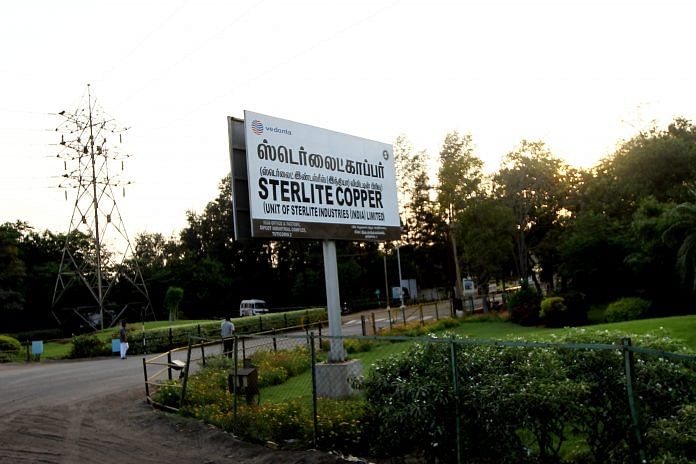Mumbai: The world’s most expansive lockdown to contain the coronavirus could slow the pace of distressed dealmaking in India, according to the head of mergers and acquisitions at Vedanta Ltd.
“With the world slowly reopening for business now post the lockdown, the pace of deal making is likely to take a bit of a breather,” Aarti Raghavan said in an interview this month. “In the medium term, the rate at which demand picks back up again and returns to business as usual will determine the vivacity of M&A activity.”
India intends to suspend new bankruptcy filings for a year while it cushions its companies from the fallout of the pandemic, and the lockdown further imperils the sale of the nation’s flagship airline. Earlier this month, Vedanta’s founder Anil Agarwal announced a proposal to take the Mumbai-listed firm private by buying out the 49.9% stake he doesn’t own in the company from minority shareholders.
Raghavan, who spoke before the delisting plan was announced, has clocked about $11 billion of deals and fundraising in an 18-year career, and the 42-year-old former Citigroup Inc. banker is among a small number of women in the mergers and acquisitions world in India. The lack of women is even starker in the metals and mining industry.
Raghavan joined Vedanta in 2017, working in investor relations for less than a year before moving on to head the M&A team. Soon, she became involved in a landmark deal.
India had just announced the so-called dirty dozen, 12 large companies ordered into bankruptcy to clean up the world’s worst debt pile. They would be the first tests of the country’s consolidated bankruptcy law, which was passed in 2016, overwriting a patchwork of legislation that in some cases dated back a century.
Five of the 12 were steel companies. They were drawing interest from Lakshmi Mittal’s ArcelorMittal, and Japan’s Nippon Steel Corp. But Vedanta also decided to enter the fray, bidding for Electrosteel Steels Ltd., a 1.5 million ton plant in the eastern state of Jharkhand.
Tycoons to Remake India Steel as $26 Billion Battle Heats Up
“Nobody had ever prepared a resolution plan. We had no clue where to start,” she said. “There was no precedent on how you structure a bid. You had to think about what kinds of risks can come up because the diligence is very limited.”
Raghavan’s efforts were rewarded in April 2018 when the National Company Law Tribunal approved Vedanta’s purchase of Electrosteel for about $720 million, the first of the dirty dozen to be sold.
In the 12 months ended March 2019, the mill generated a profit on a 35% jump in revenue. None of the 7,000 employees were laid off, according to Raghavan, who said that if the rationale for investing is sound, all the uncertainties around the law and the multiple legal battles become secondary. Acquisitions under the law have become smoother with time, she added.
Raghavan predicts firms will focus on mergers and acquisitions aimed at reducing costs and ensuring supply of raw materials in the wake of the virus. Mukesh Ambani, Asia’s richest man, has lured more than $10 billion of investment for his India-based digital platform business in a month as he looks to slash debt. However, the global crash in crude prices has stalled Vedanta’s plans to sell a minority stake in its Indian oil unit, people familiar with the matter told Bloomberg News.
The firm has in the past also faced bad press for its now-abandoned plans for mining bauxite in the Niyamgiri hills in eastern India and the shuttering of its copper smelter in Tamil Nadu due to environmental reasons. It has placed health, safety and environment in the hands of Sumathi Angusamy, who is focusing on the key areas of sustainability and climate change.
Angusamy and Raghavan are among women who make up 13% of the workforce at Vedanta, which the company aims to increase to 33% by 2023. One challenge is attracting women to work in the remote locations where the company has plants, according to Madhu Srivastava, the group’s head of human resources.
Image Overhaul
Priya Agarwal Hebbar, the 30-year-old daughter of Vedanta’s founder, has been tasked with overhauling the image of the firm.
Hebbar — who is also a director on the board of Vedanta — intends to “step by step get more and more deeper into the company” and says she will seek to open up the group from her father’s conservative way of running the business.
Among Vedanta’s goals was the doubling of its contribution to India’s oil and gas output from the current level of 27%, increase aluminum production by 50%, and at the same time aim to buy out the government’s 29.5% stake in its cash cow Hindustan Zinc Ltd.
But for Raghavan, who initially planned to be in dealmaking for just five years, the focus will be on steering the expansion and she won’t be buying indiscriminately.
“I need to have an opportunity that makes great capital allocation sense,” she said. –Bloomberg
Also read: Anil Agarwal is exploring buying out investors in his Vedanta and taking it private



